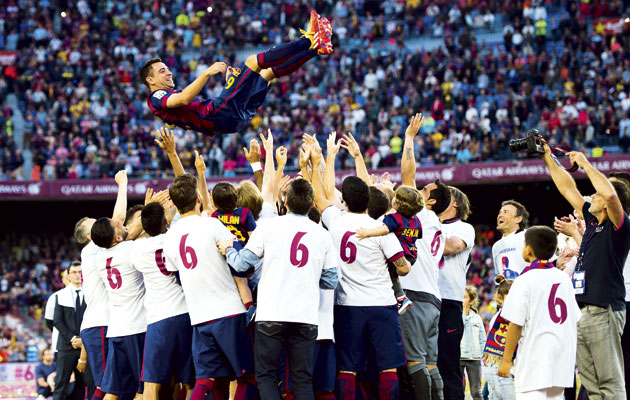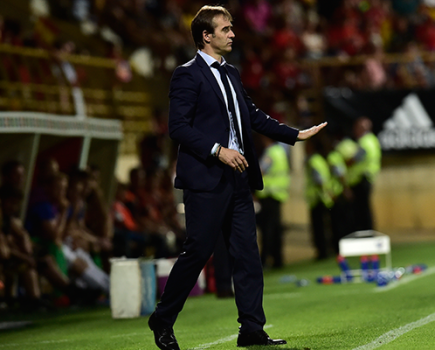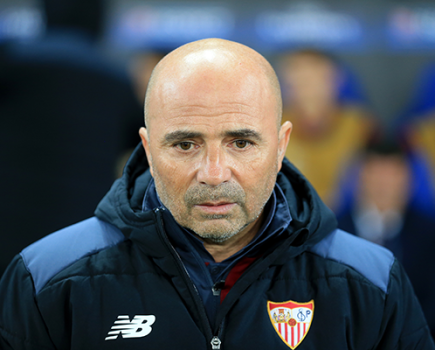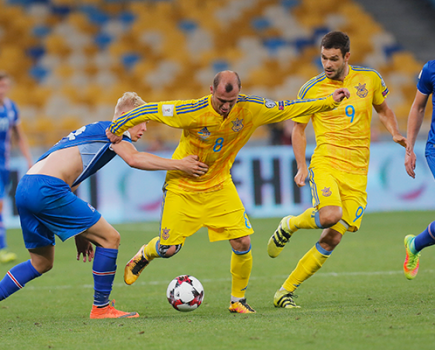It was one o’clock in the morning when Xavi Hernandez left the dressing room as a Barcelona player for the last time. And he couldn’t have wished for better company on his final walk, stepping out at the Olympic Stadium in Berlin and down the concrete slope underneath the main stand towards the team bus.
Alongside him was Sergio Busquets and together they carried the European Cup; one handle each, the trophy swinging between them.
A few days later, Xavi headed off to Qatar and semi-retirement, aged 35. His European career was over after exactly 900 senior games: 133 for Spain and 767 for Barcelona. No one has played more times for the Catalan club; no outfield player has played more times for Spain.
No one has won more, either. You could almost imagine the removal men turning up at his new home, lugging furniture around, one of them pausing and holding up a European Cup in one hand, the Spanish Cup in the other.
“Where shall we put these?”
“Stick them there with the rest of them.”
In the picture of Xavi with all the trophies he has won, there are so many there’s something almost comic about the snap. Taken before this year’s Champions League Final against Juventus, it wasn’t even complete yet.
Barcelona’s 3-1 victory in Berlin was his fourth European Cup; that’s four of the five that the club have won. There have been eight league titles too, the first of them in 1999, plus three Spanish Cup trophies, six Spanish Super Cups, two European Super Cups and two Club World Cups.
Twenty-five club medals make him the most successful player in Spanish history. A World Youth champion in 1999, he has also won two European Championships and the World Cup.
But it is not just what he won, it is also how he won. In fact, Xavi himself talks about victory and defeat as “impostors”, about there being something deeper than success. It is not just about the trophies; it is about what he represents. Xavi was the ideologue for club and country, bringing an identity to the most successful national team and most successful club side there has been here, imposing a style and a way of playing that made them instantly recognisable.
He may well be the most important Spanish player of all time, the man who helped change their history. In the words of Porto coach Julen Lopetegui, who ran Spain’s under-19s and under-21s along what could be called “Xavian” lines, he “changed football”. According to Lopetegui: “Xavi helped us build, or see, a new player profile that ended up running through all levels of the national team. He killed off the myth of physicality above all else.
“There are lots of players who win things, but few who lay down concepts, ideas, who change the way we think – and Xavi did that.”
Andoni Zubizarreta, the former Barcelona goalkeeper and sporting director, described him as defining a new role, saying: “In the future, we will see players and say ‘he plays like Xavi’. ”
Meanwhile, as former Athletic Bilbao player Joseba Exteberria told journalist Rodrigo Errasti: “If we analyse football as a collective sport Xavi is the most influential player I have ever seen. Others can move their team but I have only ever seen one player, and that’s him, who can move all 22 players on the pitch as he wishes, to his rhythm.”
An apparently throwaway line from Dani Alves also encapsulated his significance. It was not always that Xavi played passes to fit the run, it was that he played passes that obliged the run, however much he claimed that his team-mates’ movement made the game easy for him. As Alves put it: “Xavi plays in the future.”
Xavi’s former Barcelona coach Pep Guardiola said, as the end drew near: “Xavi is the most amateur player I know, and at the same time the most professional player too, such is his love for football.
“When he is not playing football, he is watching football.”
It is an apt description. When World Soccer interviewed him in early 2011, he was soon talking about Portsmouth and Real Oviedo. His enthusiasm carried you along. Just because the tape stopped didn’t mean that he had to.
That day, Xavi talked about the games he had been watching the night before. There had been five of them, he admitted – even though they weren’t very good.
“I was watching Sampdoria-Juventus last night and it was awful, but I stuck with it; there’s always something that catches your eye, some detail,” he noted, apologetically, like an excuse. At one point he checked himself and smiled a little sheepishly. “Well,” he explained, “I am single.”
He is not single any more but even now Xavi can’t help himself. He loves football. There was a moment during that chat when Matthew Le Tissier was mentioned and Xavi’s eyes lit up in excitement. Le Tissier once joked he was going to get a T-shirt made with the words “Xavi’s idol” on it. Praise indeed. World Soccer’s Player of the Year for 2010, Xavi was always obsessed with the game and a committed believer in a specific approach – the technical Barcelona and Spain approach that he represents.
Enthusiasm and ideology – with Xavi, the two things go hand in hand. “Look, the thing is,” he told World Soccer that day at the club’s Sant Joan Despi training ground, “I like football so much. I enjoy this. I like the demands, I like the game, I like trying to perfect things. I watch so much football. All of it. Everything.”
“Don’t you ever get bored?”
“No,” came the reply. “Of course there are games that are boring, but no. Football doesn’t bore me. I like to watch players. What’s he like? What’s he doing? What are they trying to achieve?”
To listen to him talk about his own role on the pitch was to see the constant analysis, the thought, the awareness. He described himself as someone who spends all game thinking about space, looking for it, and then distributing the ball, to all of his team-mates.
“My game is seeing a free man and giving it to him. I think: ‘Bloody hell, the defender is here, so I’ve got to play it there.’,” he said. “Sometimes, I even think to myself: ‘this team-mate is going to get annoyed because I have played three passes in a row and I haven’t given him the ball yet. I better give the next one to, say, Dani because he’s gone up the wing three times now and I haven’t given him a pass. When Messi hasn’t been involved in the game I think: ‘the next pass is for him.’ So I’m working out not only the space but who’s had passes from me.”
There was an almost religious zeal about his defence of his view of football, his philosophy – one that could be exclusive and, at times, annoyed those who did not share it. His dismissal of other styles as somehow not being football irritated many, while others saw a puritanical streak in him, one that they felt too many others had taken as gospel. And yet there is a kind of realism in his commitment to that model too and acceptance was slow in coming; it has not always been easy.
Xavi made his debut in 1999, a goal saving Louis Van Gaal’s job as manager. At the end of the year, Don Balon magazine named him their “revelacion” of the year. He had won a first league title and the World Cup at youth level followed. But the style of football he represented was not always trusted or successful; it was not until 2005 that he won anything again and his future was far from secure. He certainly did not yet have the status he would come to enjoy later on.
If he agreed that he came to be seen as the defender of a footballing faith, Xavi insisted that was because he had very little choice. He described players like him as an “endangered species” in a game that was, in his eyes, increasingly all about physique. Winning changed that, bringing confidence and commitment, acceptance and imitation too. He laughs now at how he and Andres Iniesta were seen as a problem, not a solution. He did not laugh then.
Fortunately, two men came into his life whose impact on him was as huge as his was on the game in Spain.
“Winning serves to make people re-evaluate our style, my style,” he recalled. “I’m very happy because, from an egotistical point of view, six years ago I was extinct as a player; footballers like me were in danger of dying out.”
He was in danger of not continuing at Barcelona, too; an entire career has been spent at the Camp Nou but it could have been different.
Xavi’s mother was instrumental in him not leaving Barcelona when the first offer came in, from Milan, when he was just a teenager. Others followed and there was the chance, too, of Xavi leaving towards the end of the Frank Rijkaard era when Barcelona appeared to be collapsing. At least, that’s what he feared. The rumours that the club wanted to sell him, that they did not rate him, reached him.
But then so did Luis Aragones and so did Guardiola; the summer of 2008 was
a new beginning. “With Luis, the revolution began: Spain swapped fury for the ball and showed that we could win playing good football. Without him, nothing would have been the same,” Xavi recalled in an open letter to Aragones written after the coach’s death. What Aragones did was change the style to Xavi’s style. Xavi would lay the path for Spain to walk down.
“He would come up to my room and we talked for hours, often about style,” said Xavi. “He’d say: ‘That’s the key, knowing what kind of football we want to play; to have no fear, however much they run. You and I know that the ball runs more.’
“He made me feel important when my self-esteem was a disaster. He gave me the controls for Spain when I did not even have them for Barcelona. ‘You run this team, and let them criticise me’. ”
Guardiola agreed. “Pep said to me: ‘Look, I can’t even imagine a Barcelona team without you, I want you with me, I just don’t see this team without you in it’, ” Xavi explained. “And that was that.”
“That” was everything, the kind of dominance the modern era rarely sees. A shift in paradigm, something new, perhaps even epoch defining. Every year for five consecutive years, Xavi was at the heart of the team that claimed the most significant trophies on the planet: the European Championship in 2008, the European Cup in 2009, the World Cup in 2010, the European Cup in 2011, the European Championship in 2012.
Just before the Final of Euro 2012, Xavi had decided that his time with the national team was probably over. He told Vicente Del Bosque that the Final would be his last game. Del Bosque persuaded him to stay, to give it two more years. It had not been his best tournament; in 2008 he had been given the Golden Ball and in 2010 his control of games in South Africa saw him on the podium for the Ballon d’Or. But Spain destroyed Italy 4-0 in the Final and that day Xavi was superb. Afterwards, the Spain coach said: “You see?”
Xavi continued, but he may have wished he had not. Age waits for no man, tactics were shifting and so was the environment. By Brazil 2014, it was different. Spain were the first team knocked out. After their final game against Australia, Xavi left Curitiba, an unused substitute, without a word.
He seemed set to leave Barcelona, too: there were offers from the US and Qatar. He retired from international football and was ready to leave European club football, where the season had ended trophyless. His style was questioned once more. Some called it “the death of tiki taka”; others claimed that a style that had won it all like no other had been “found out”. An era was over, they said. His era.
Barcelona were evolving. Ivan Rakitic had been signed to replace Xavi. But instead of going, Xavi eventually stayed. The coach Luis Enrique was clear and honest with him. If he wanted, there could be one more year. His role was a reduced one, and the debate raged almost all season, but it was important too – on and off the pitch. Few had the moral authority to manage the crisis in January like Xavi did. He was fundamental, intervening with Lionel Messi.
And slowly, things were falling into place: incredibly, Barcelona were closing in on a treble, their second in seven years. What a way to go. It had been unthinkable at the beginning of the campaign. Tears in his eyes, Xavi bade farewell. “I could not have wished for a better ending,” he said.
“He will leave here through the puerta grande, triumphantly through the main gate,” Enrique said on the eve of the Champions League Final. “It would have felt wrong if he had left last season and I am so pleased he can leave like this, in the way that I would have liked Víctor Valdes and Carles Puyol to have been able to as well. He deserves it.
“His importance is beyond doubt: he has played more games than anyone else at Barcelona, in an era when staying at a club this big for so long is extremely difficult, and he has won more titles than anyone else. Now he has the chance to try to win one more.”
In Germany he did, and as captain too, coming on to replace Iniesta, his friend and team-mate handing over the armband, attaching it for him. One last time, one last success. 23, 24, 25… His last three games as a professional in Europe, his 898th, 899th and 900th matches, all ended the same way: with him lifting a trophy. First it was the league title; the Saturday after that, it was the Spanish Cup and the Saturday after that Xavi walked out of the Olympic Stadium carrying the European Cup.






